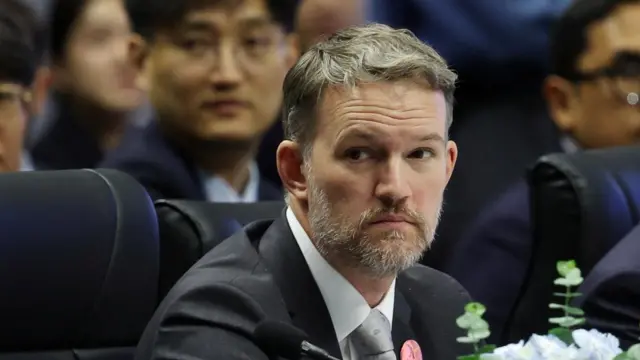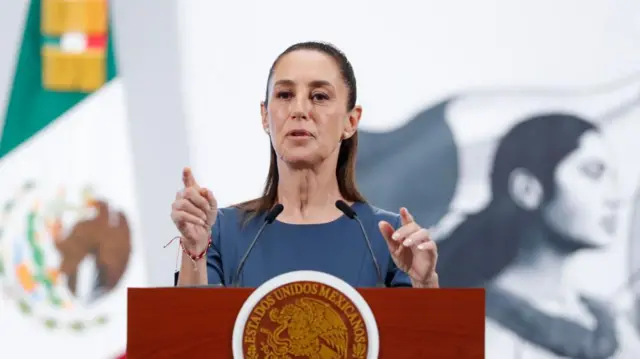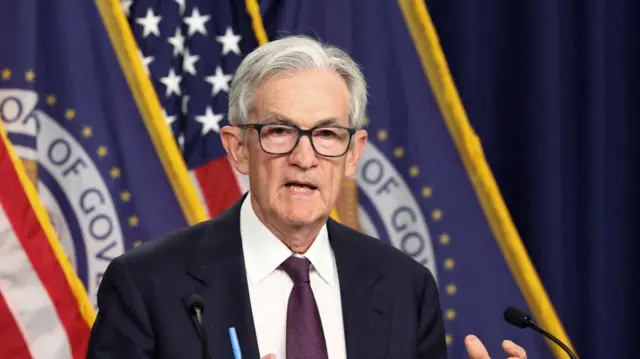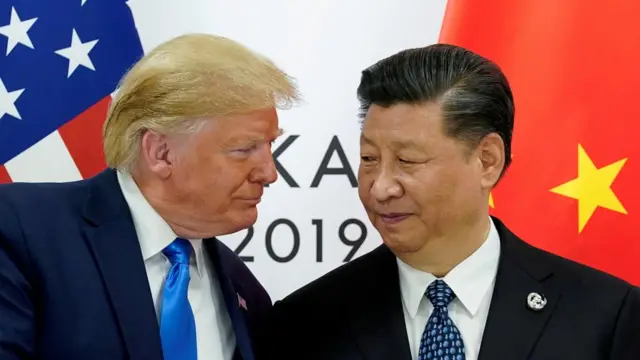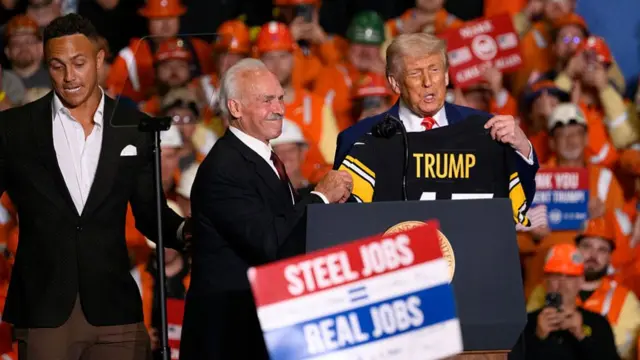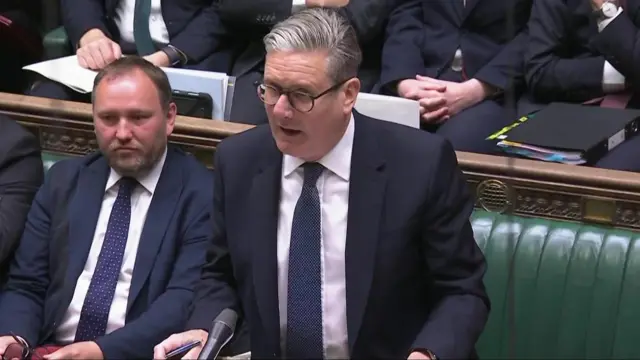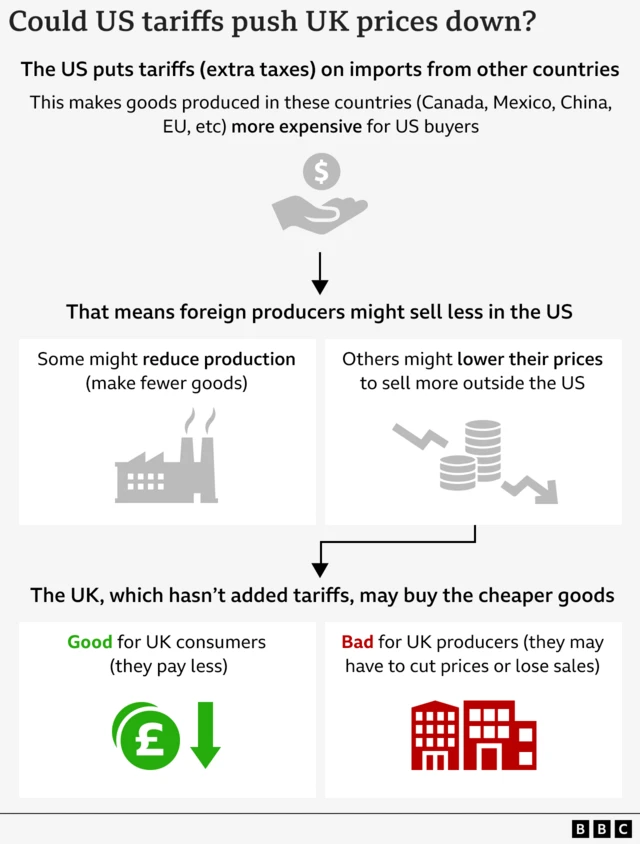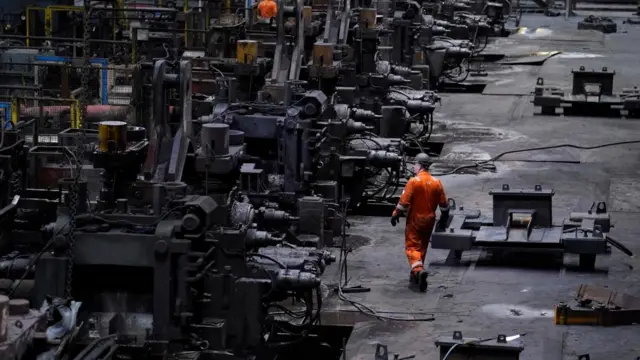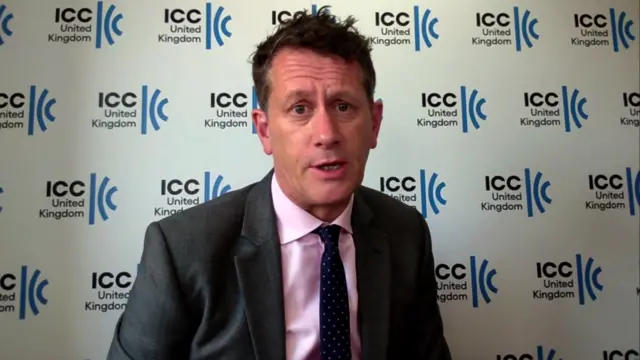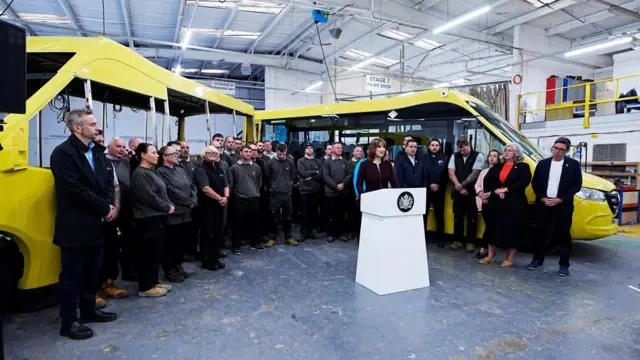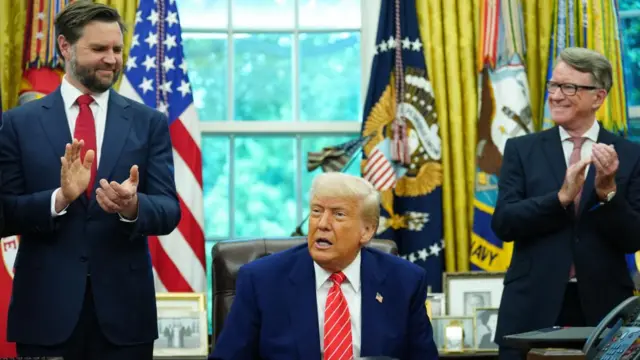Global leaders and businesses react to doubling of US metal tariffspublished at 17:03 BST 4 June
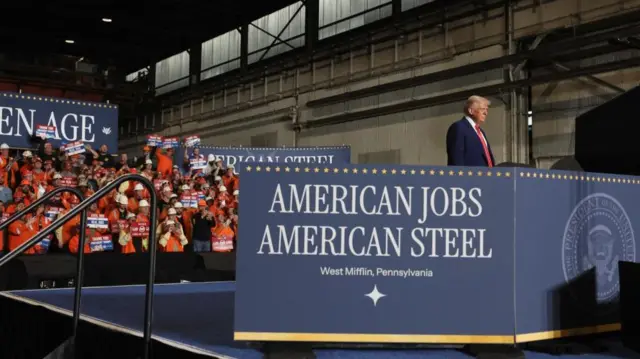 Image source, Reuters
Image source, Reuters"If you don't have steel, you don't have a country," US President Donald Trump told a crowd of supporters in Pittsburgh, Pennsylvania, on Friday, when he announced the US would double its steel and aluminium tariffs to 50%.
Those tariffs, which have come into effect today, have prompted a wave of reaction from world leaders and businesses - some of whom have criticised the latest tariff hike as fuelling more uncertainty in the global economy.
Mexico's President Claudia Sheinbaum vowed to take countermeasures if no deal is met with the US.
Elsewhere, the EU's trade commissioner said he had a "productive and constructive" discussion with US trade envoy Jamieson Greer.
There was some relief for the UK after it was revealed the country would be exempt from the tariff hike, due to its trade agreement with the US. The UK would instead face a 25% rate.
As our business editor reports, the UK now has until the 9 July to finalise its trade deal with the US. If not, the UK too could face 50% metal tariffs.
Despite the weariness of international allies, US steel manufacturers are strongly backing the White House. "This tariff action will help prevent new surges in imports that would injure American steel producers and their workers," wrote the American Iron and Steel Institute. , external
We will be pausing our live coverage shortly, but you can stay across this story on BBC News: Trump's 50% tariffs on metals come into effect


